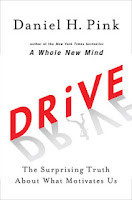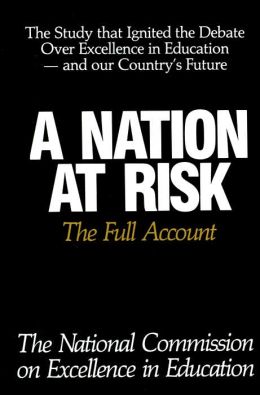 I am lucky. I have an incredible staff. I was hired three weeks into this school year to replace a principal that did a great job of developing a solid PLC foundation, that brought in a balanced literacy approach with the Daily 5 structures, and set up a positive school environment with the integration of PBIS practices.
I am lucky. I have an incredible staff. I was hired three weeks into this school year to replace a principal that did a great job of developing a solid PLC foundation, that brought in a balanced literacy approach with the Daily 5 structures, and set up a positive school environment with the integration of PBIS practices.
I am lucky. I have veteran staff members that are positive and eager learners themselves. I have teachers that are supportive of shared leadership practices and they support the initiatives we are taking on like the Common Core Standards, Curriculum Mapping, Educator Effectiveness, and Common Formative Assessments.
I am lucky. I am lucky to have a staff that has welcomed me in. A staff that has answered my questions about how we do things here but also encouraged me to change things as well. Not everything, but to suggest it where I think we may benefit from it. A staff that wants the absolute best for their students. Because what's best for the students will undoubtedly be best for them.
I am lucky. I found a staff, and even a district, that is dedicated to learning. Learning for all. Knowing that increasing learning for students means learning for staff as well. A staff that knows we cannot prepare students for the future if we only practice how we learned in the past.
I am lucky. Sometimes it feels like all I need to do is keep them up to date with current trends and practices. Share the latest articles, introduce new apps or listen to the great educational and student-centered conversations they already have. My staff is AWESOME!!
But..........I do have one dragon to slay. One battle to fight. One windmill to joust. A nemesis that many education leaders face today.....
It can be a paralyzing emotion for many people and it has made its way into the education arena.
Policy and law changes have unsettled the feeling of comfort to which many teachers had become accustom. Dismantling unions, grading schools, high stakes testing, increased administrative pressure to succeed on standardized tests, performance pay, scripted curriculum, school choice vouchers, etc., etc. Not all of these reforms were created to diminish teacher voice or union power, but their cumulative effect has definitely created a culture of fear amongst teachers. They second guess themselves, they are leery of taking risks in practices, and they have become distrustful of their leaders. They fear being honest and critical. They feel like they will be cut loose at any time, fired from a job they love and have studied and prepared for over much of their life.
Policy and law changes have unsettled the feeling of comfort to which many teachers had become accustom. Dismantling unions, grading schools, high stakes testing, increased administrative pressure to succeed on standardized tests, performance pay, scripted curriculum, school choice vouchers, etc., etc. Not all of these reforms were created to diminish teacher voice or union power, but their cumulative effect has definitely created a culture of fear amongst teachers. They second guess themselves, they are leery of taking risks in practices, and they have become distrustful of their leaders. They fear being honest and critical. They feel like they will be cut loose at any time, fired from a job they love and have studied and prepared for over much of their life.
My staff is lucky. I see myself as their servant. I see myself as the person that is there to help them do their job better, more efficiently, more effectively. I see myself as the person who gets them what they need and clears all the obstacles I can. I advocate for them so they can work the miracles they work everyday.
My staff is lucky. I am not a tyrant or power hungry leader. I see myself as their coach. A leader who believes that sometimes we do our best learning when we risk making mistakes. A leader who believes in words like "we" and "us", not "you" or "I". Because "we" are a team, and my success depends on their success, and we all achieve more together.
Our students are lucky. They have an incredibly dedicated group of teachers that care about their students. They care about their home-life, they care about their health, they care about their learning, they care about their future. Our students have teachers that work tirelessly to make sure their students achieve success in life, and find happiness in their future. But maybe the luckiest thing for our students.......is that their teachers won't leave all that to "Luck."
Our students are lucky. They have an incredibly dedicated group of teachers that care about their students. They care about their home-life, they care about their health, they care about their learning, they care about their future. Our students have teachers that work tirelessly to make sure their students achieve success in life, and find happiness in their future. But maybe the luckiest thing for our students.......is that their teachers won't leave all that to "Luck."
















































